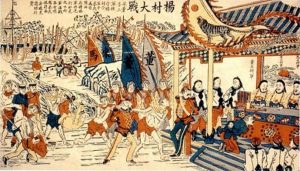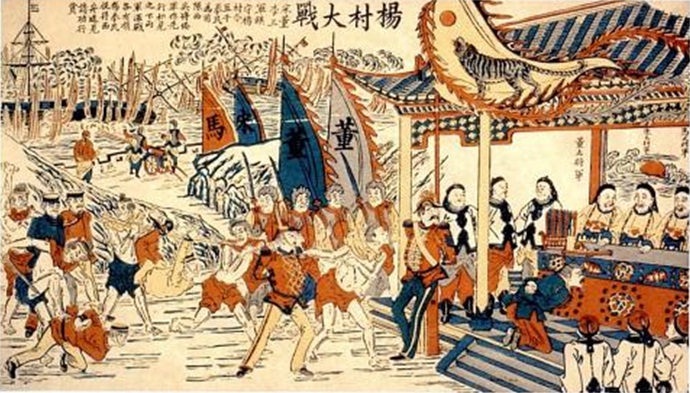China is a country with a long history of about 5,000 years. The culture of Ancient Chinese Festivals History rooted deeply in the people from the ancient times, and it thus shows its enormous vitality. In spite of the change of times, it has gradually become part of the heritage of the colorful Chinese culture.

Origin of Ancient Chinese Festivals History:
A large part of the Ancient Chinese Festivals History had already showed the rudiment in the Qin Dynasty (221-206 BC), such as the New Years Eve, New Years Day, Lantern Festival, Shangsi Festival, Hanshi Festival, Dragon Boat Festival, Double Seventh Festival, and Double Ninth Festival, and they were celebrated since the ancient times.
The primal customs were related to the primitive worship and some superstitions and they often had something to do with the colorful legends and stories, which have covered a romantic veil on the festivals. The religion also influenced the festivals to a certain extent.
Some historical figures, after merging into the culture of festivals, also become more memorable in the history. All these factors had contributed to the profound historical and cultural charm of festivals.
Popular Ancient Chinese Festivals:
Ancient Chinese festivals like Chinese New Year and the Dragon Boat Festival were some examples of such festivals based on legends and worships. The Chinese New Year begins on the first day of the first month in the lunisolar Chinese calendar. According to Chinese folktales, the festival started with a fight against Nian (a mythical beast).
The ancient Chinese had a belief that Nian will not attack them if a food was offered to it. Since then, Chinese put food in front of their doors on the starting day of the festival. People prayed to the ‘God of Wealth’ with the hope that He will bring good fortune to the family.
The Duanwu Festival (Dragon Boat Festival) was believed to have originated in ancient China. It was celebrated to honor the death of Qu Yuan, a renowned poet and minister to the King of Chu in 278 BC.
As the Chu was conquered by Qin, Qu Yuan committed suicide on the fifth day of the fifth month by drowning himself in the Milou River. The local villagers, who admired him, fed the fish so that they would spare the body of Qu Yuan, they also paddled out on boats to retrieve his body. This marked the beginning of the Dragon Boat Festival. Ancient Chinese festivals were celebrated with the aim of spreading good wishes and happiness.
Most of the traditional festivals in ancient China had something to do with the development of astronomy, calendar, and mathematics. The beginning of these traditional festivals was particularly related to the later decided 24 seasonal division points under the traditional Chinese lunar calendar. All of the 24 seasonal divisions had almost been settled by the time of Han Dynasty (206 BC-AD 220).
These divisions helped to form festivals, for, in their work and life, people developed different customs and activities which can express their good wishes according to yearly change of seasons and natural phenomena. Based on these customs and activities, festivals began to take their shapes.
Festivals in Tang Dynasty
During the Tang Dynasty (618-907), the festivals had stripped off its mysterious coat of primitive sacrifices and superstitions and changed into more entertaining amusement. Many relaxing activities appeared and soon prevailed as a kind of fashion.
Festivals in ancient Chinese times became so joyful and colorful that they attracted different nationalities and the development of religions, new vigor was always being infused into the culture of festivals, and the customs are able to last till today.
Due to the development of society and the advancement of times, peoples views about life have changed greatly, and the culture of Chinese festivals is changing with time, too. Since the Revolution of 1911, China entered a phase where different styles of festivals co-existed with each other. Some of them rose and some of them fell.
Four important ancient Chinese festivals (the Spring Festival, Pure Brightness Festival, Dragon Boat Festival and Mid-Autumn Festival) in particular, are still widely celebrated among people in China. Some less important festivals, on the other hand, were gradually forgotten and had faded over the years.
As peoples, living conditions keep improving and their lifestyles change gradually, the ways of celebrating the festivals have changed, too. Combining both tradition and fashion, they show a trend of diversification.
A large number of people no more stick to the traditional customs followed since the ancient times and begin to choose a more simple and casual way to celebrate the festivals. The Chinese Ancient Chinese Festivals History and the festival life of the Chinese people are getting more and more colorful and exciting.
